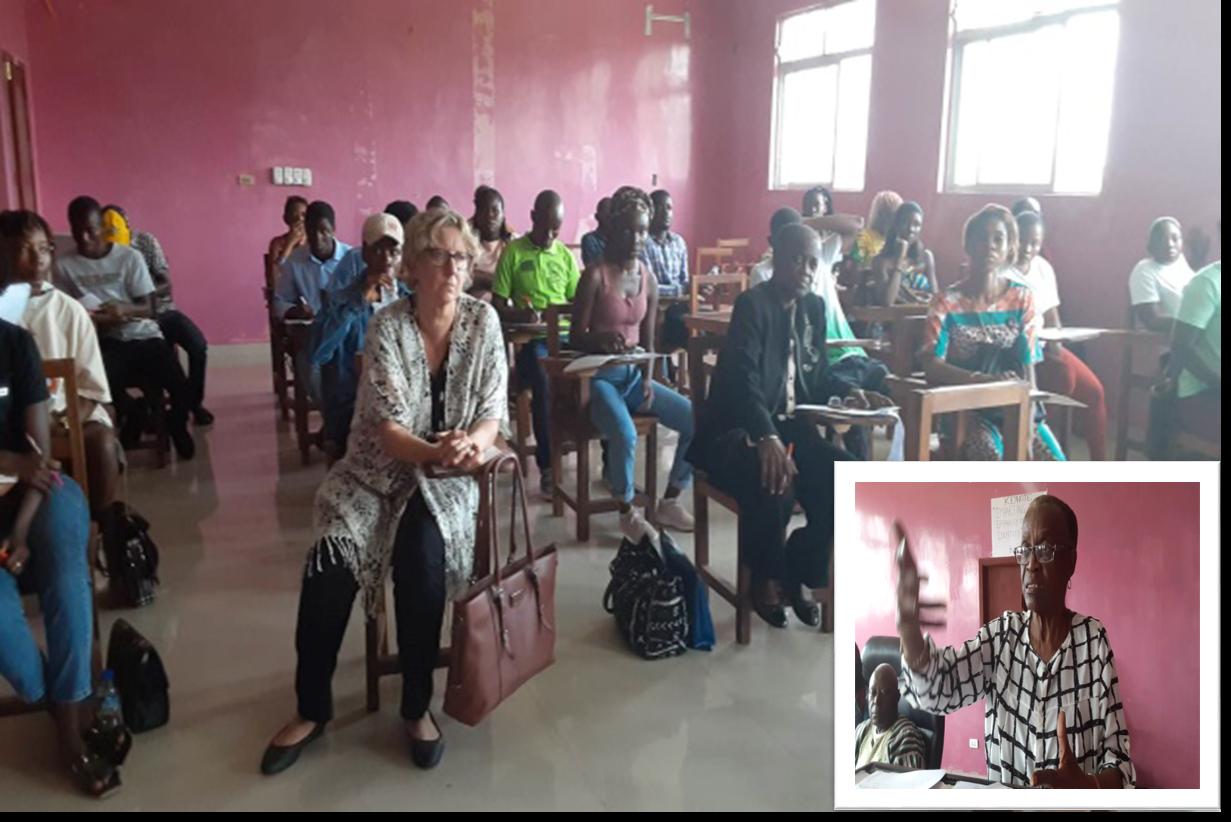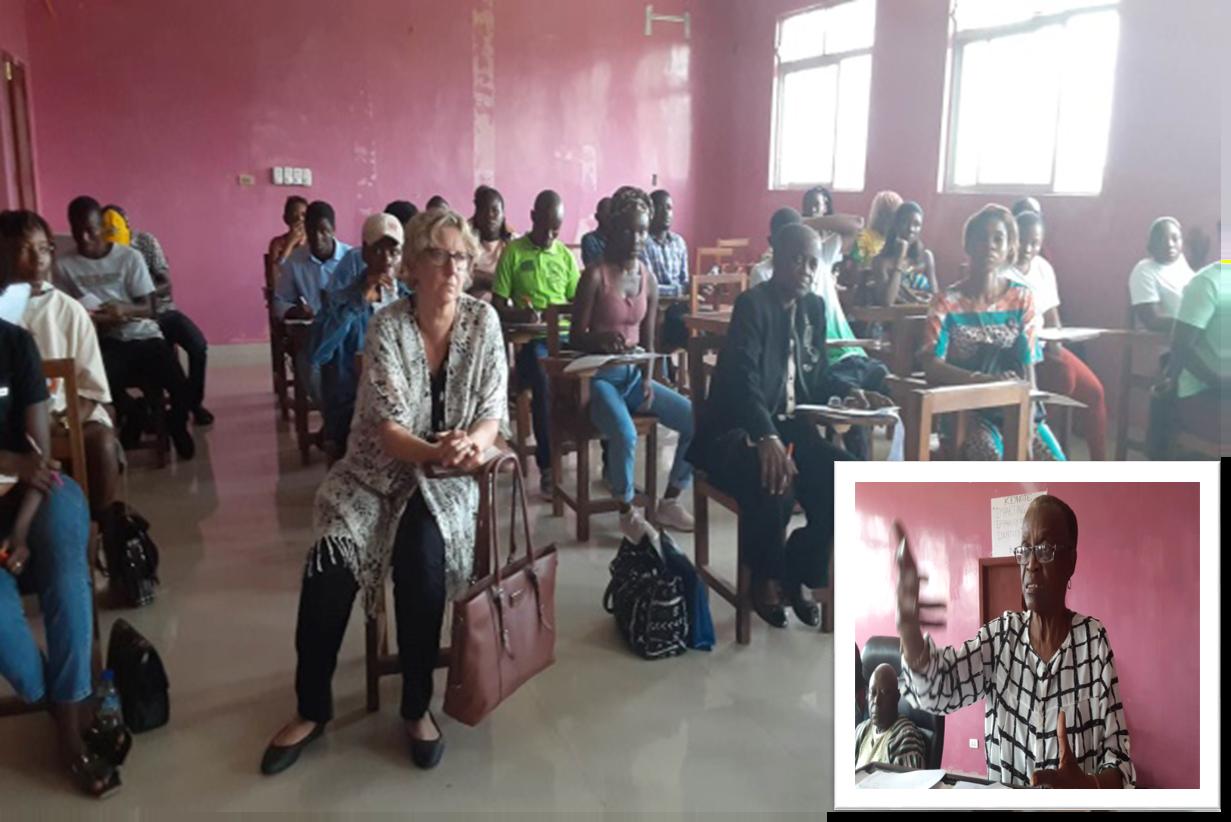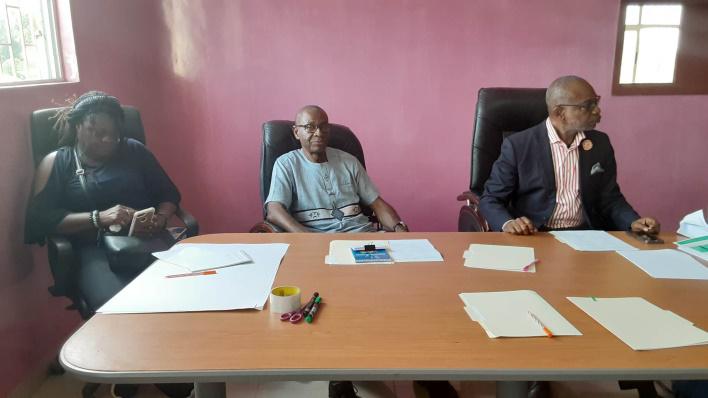Africa-Press – Liberia. The Liberian Elders of the Republic of the Bicentennial 2022 with support from the National Bicentennial Committee, recently held its National Bicentennial Forum on the theme: “Historical, Cultural and Socio-Economic Perspectives of Liberia’s Bicentennial (1822-2022).
The historical Forum, which was held at the Cuttington University, Liberia’s second oldest institution of higher learning located in Suacoco, Bong County, ran from November 16-19, 2022. It brought together scores of scholars, development experts including religious, civic and business leaders to present papers and exchange ideas for the growth and development of Liberia.
By Mae Azango
Mr. Kenneth Y. Best, Managing Editor of the Daily Observer Newspaper, who was slated to serve as the Keynote speaker but could not make it in person thus his keynote address under the theme: “Imparting the Epiphany of Liberia’s identity” was delivered by Dr. Roseda Marshall.
Mr. Best’s speech covered the history of Liberia in the days of old. It referred to the Liberian civil war in 1989 brought by Charles Taylor, which lasted for 14 years and destroyed the country’s infrastructure and led to the massacre of the over 250,000 people.
“It has been said that the central reason for Liberia’s descend into destruction is the fact that the majority of our population felt themselves excluded from the progress. Not only were they excluded from political life and socioeconomic upward mobility but also they were excluded from the sense of pride they could have derived from seeing their culture and languages embraced and promoted in the main stream. We, the Liberian populists were taught in many places by Americans and other foreigners that we ended up embracing the Western cultures and tastes and never truly developed the appetite for our own culture. It was not until 1980 when the political tides had turned by a bloody deficit load that some started assuming indigenous names and wearing African attires,” he stated.
Best’s speech further said; “For me, I have changed my name. In 1963 my middle name Y, was not Y at the time, it was A, which stood for Aldrick. I then changed my name from my background to Yarkpawolo. So today, I am known as Kenneth Yarkpawolo Best,” the speech pointed out
Dr. William E. Allen, who served as the first presenter, spoke on the Theme: “Rescuing the Liberian History Education” for which he identified a key weakness in the Liberian History Education by saying:
“If we do not find a solution, History Education will die very soon in Liberia,” he said
He disclosed that Liberian History has only one teacher presently. Adding: “And for a whole nation to have only a History teacher is troubling, because that teacher is responsible to train history teachers, who will teach in secondary schools and those who will go abroad to get their Masters and Ph.Ds, before coming back to teach at the University of Liberia.”
“How did we get here, for a nation that has lost its history so much? The one history teacher, who is now at the University of Liberia, will be retiring soon. So what happens when he retires? The issue here is the scarcity of students who are interesting in doing History. The trend in our education today is the Science, Technology, Engineering and Mathematic courses called (STEM) education. These subjects are where the students are focusing, but to preserve our culture and history, we need people who are trained in history,” he emphasized.
According to him, before the war, there were at least two universities offering degrees in History; one was then Cuttington College and the University of Liberia. But Today out of more than 10 universities and colleges, only one is offering a Bachelor degree in History. And one would need a Bachelor degree in History to be able to teach in secondary schools.
Dr. D. Evenlyn S. Kandakai, of African Women’s Leader’s Network presented on women’s rights and women occupying various leadership roles in medicine, business, music, religion, etc. During Dr. Kadakai’s presentation, she mentioned women lacking behind and pointed out UN Resolution 1325, which speaks about women having equal rights as men.
Dr. Kadakai also urged women to put themselves in places that will make them to ascend to head leadership positions like Ellen Johnson Sirleaf, who became President of Liberia and subsequently, along with Leymah Gbowee, won the Nobel Peace Prize.
She also spoke about the late Ms. Ruth Sando Perry, who served as head of the five-man council.
Another presenter, Rev. Augustine Arkoi of Better Future Foundation (BFF), spoke on the Theme: “Attempt to Achieve National Unification in Liberia and why Those Attempts Failed 200 Years.”
As he expressed how grateful his BFF was to the organizers for holding the ‘important intellectual discourse’, he stated that the Bicentennial for any country, is a significant milestone. Adding: “It should not just be celebrated as an event but rather a sustained national platform for strategic peace consolidation and development programs backed by multiple engagements with bilateral and multilateral partners and state and non-state actors to ensure the national self-esteem and self-reliance.”
“We are also aware that this Forum represents the academic component meant to enrich our national life heritage dialogue and to narrate our Bicentennial experience and its general theme: Historical, Cultural and Socio-Economic Perspectives of Liberia’s Bicentennial (1822-2022),” he said.
Rev. Arkoi went on to say that in 2014, the Better Future Foundation and partners organized a civil society-led initiative and held a program marking the celebration of the National Unification Day in the Republic of Liberia.
“I remember few of Liberia’s scholars who would not have missed contributing to this forum were they alive today. I wish Rev. Emmanuel Bowier were here; I wish Mother Mary Brownell were here; I wish Dr. Amos Sawyer were here; I wish Dr. Joseph Saye Guannue were here. And I especially wish Prophet David Francis Jallah of the Liberia House of Prayers who in 2014 inspired my dedication to honoring our National Unification Day, were also here,” he said.
The youthful Dr. Charles Gbollie spoke on the theme: “Intergenerational Change: Bridging the Gap between Old Adults and Young People for Liberia’s Growth and Development.“
He called for greater measures to be taken to bring understanding between old adults and young people for Liberia’s growth and development.
Dr. Roseda Marshall, a renowned Pediatrician and Medical Administrator, spoke on the theme: “The Historical, Cultural and Socio-economic of Modern Medicine in Liberia.”
According to Dr. Marshall, the poor healthcare situation in Liberia in the 1800s, made the American Colonization Society to send many white medical doctors to take care of the colony and the free black men and women returning to Africa. Notwithstanding, many of them died of Malaria, which they referred to as fever because they had not discovered a research on malaria during those days until the 1900s.
Dr. Amanze Charles Ihedioha, Vice President for Academic Affairs at Cuttinton University, spoke of Cuttington’s many contributions to Liberia’s growth and development.
He said during the late 1800s when Cuttington was established, by then in Nigeria and other African countries, women were not going to school, but young women in Liberia were gaining education in different disciplines. And because of that, it brought them on par with their male counterparts.
“I attended Cuttington and got my wife from here, because she also attended here. When a couple is educated, it enhances growth and development of a nation,” he said.
Interestingly, the Elders provided space for the youth voices to be heard by Romeo Kamara, a graduate of the Maratha International Preparatory High school. And he spoke on the theme: My Liberia, My Present, My Future.
The forum became very interactive and engaging as many students of Cuttington University craved for knowledge and were delighted in the knowledge provided by the Elders. They asked many questions intended to satisfy their serve their curiosity.
Elder Rupel E. Marshall Sr., Chairperson of the Board of Directors of EPA, served as the Master of Ceremony for the Forum; Madam Dee Zoe Lake, Chairperson of the Forum, welcomed the participants and gave a brief history of the Forum.
Elder Maureen Johnson Huchison introduced the key note speaker. Elder Maureen Shaw handled operations for the entire Forum.
While in Bong County, the Elders visited the Kpatawee Waterfall Resort and took a trip to Suacoco Town to visit the grave site of Madam Suacoco and memorial clinic in honor of the late Rev. J. David Lake.
The Elders planned to use the presentations made at the Forum to be compiled into an Anthology that will be shared with Liberia’s policymakers and other stakeholders, to be used towards the growth and development of Liberia.
For More News And Analysis About Liberia Follow Africa-Press








